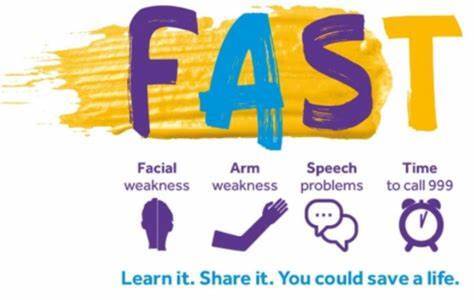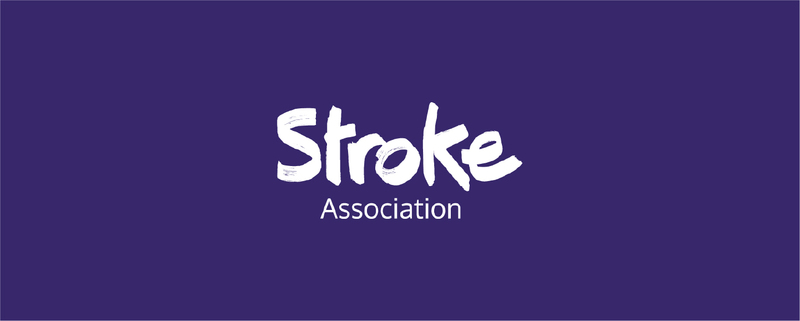{{ root_page.title }}
Stroke Association
What is a stroke?
A stroke happens when the blood supply to part of the brain is cut off, killing the brains blood cells. Damage to the brain can affect how the body works. It can also change how you think and feel. The effects of a stroke depend on where it takes place in the brain, and how big the damaged area is.
A stroke can be life changing. It can happen to anyone of any age and affects everyone in different ways.
A stroke is a medical emergency. If you spot the signs of a stroke, call 999.
How to identify a stroke
The FAST acronym (Face, Arms, Speech, Time) is a test to quickly identify if someone is having a stroke.
- Face weakness : Can the person smile? Has their mouth or eye drooped?
- Arm weakness: Can the person raise both arms?
- Speech problems: Can the person speak clearly and understand what you say?
- Time to call 999: Call 999 if you see any of these signs.
Acting FAST will give the person having a stroke the best chance of survival and recovery. Always call 999 straight away.
Ambulance paramedics are trained in stroke and will ensure the person receives emergency medical care and specialist treatment.
For more information on how to act FAST, download our FAST guide.

Other symptoms of a stroke
The FAST test helps spot the three most common symptoms of stroke. However, there are other signs that a person may be having a strole which need taking seriously. These include:
- Sudden weakness or numbness on one side of the body, including legs, hands and feet.
- Difficulty finding words or speaking in clear sentences.
- Sudden blurred vision or loss of sight in one or both eyes.
- Sudden memory loss or confusion, and dizziness or a sudden fall.
- A sudden, severe headache.
If you spot any of these signs of a stroke, don't wait! Call 999 straight away.
How long do symptoms last?
Symptoms can vary between different people but they often come on suddenly.
If symptoms only last a short amount of time, it could be a tranient ischaemic attack (TIA), also known as a mini-stroke. It is still vital to call 999 and get urgent medical attention. A TIA is a medical emergency and a warning that you are at risk of having a stroke.
See our TIA pages for more information.
Contact Us
- Stroke Helpline: 0303 3033 100
- Email: [email protected]
- Website: www.stroke.org.uk
The Stroke Helpline is available 6 days a week. If the helpline is closed or all the lines are busy, please call 999 immediately or 111 in non-emergency situations.
The Stroke Association website has a vast amount of information relating to strokes, inlcluding an online community called My Stroke Guide which gives you free access to information on different types of strokes, risk factors and secondary conditions, as well as guidance on how to improve health and mental wellbeing.
